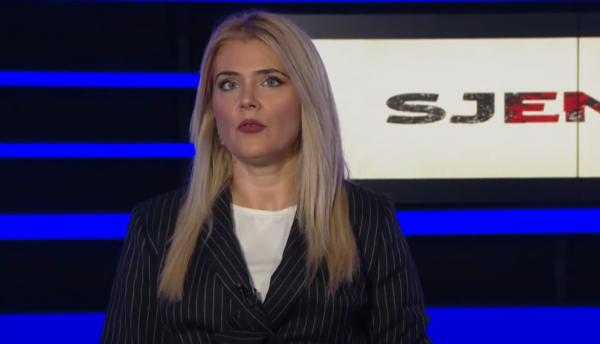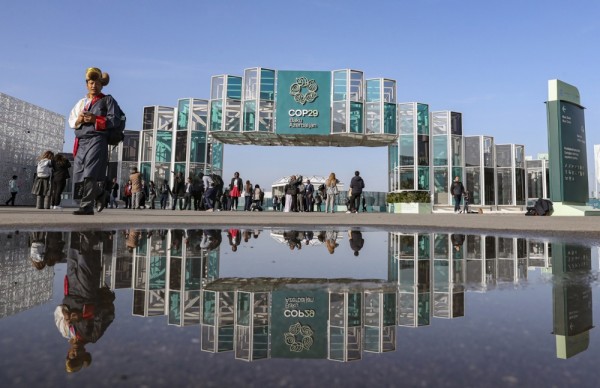A longtime journalist, Nadezhda Azhgikhina is the former executive secretary of the Russian Union of Journalists and currently vice president of the European Federation of Journalists. With support from organizations such as UNESCO, UN WOMEN and the OSCE, she has coordinated numerous international projects relating to press freedom and gender and cultural rights. She recently became a contributor to the U.S.-based weekly magazine The Nation, where she writes on Russian foreign policy and civil rights issues.
Azhgikhina spoke with IPI recently by phone about the importance of dialogue – in particular between Russia and Ukraine, and Russia and the United States – in the face of tremendous tension and, in the cast of eastern Ukraine, even war.
IPI: What do you see as the biggest problem facing Russian media today?
Nadezhda Azhgikhina: First, you have economic problems, which put serious pressure on the existence of independent media outlets. The media market is not transparent or friendly to diverse and independent voices. Legal pressure is also a significant problem. Media experts have counted over 20 different provisions that make the work of journalists more difficult. The implementation of laws is often selective and not perfect. There is also increasing violence against journalists and overall there is a culture of impunity. Some of the better-known killings of journalists, such as those of Vlad Listiev and Anna Politkovskaya, have not been investigated properly. Then there is the lack of professional cooperation in the media field. We have no strong union movement or strong association of editors or publishers.
But I think that the most serious problem is the lack of interest in media freedom or the safety of journalists on the part of the general Russian audience. When we talk about attacks on independent journalists, restrictions on independent media, different forms of censorship – which is formally illegal in Russia – we need to keep in mind that these things are possible because the public doesn’t speak about against them and because professional organizations don’t tackle them jointly.
This is a very sad phenomenon because at the beginning of Russia’s democratic opening in the late 1980s, during Perestroika and Glasnost, audiences supported the growth of independent media. There was general support for democratic development. That’s not the case anymore.
IPI: With the Russian Union of Journalists, you’ve been instrumental in initiating dialogue with the Ukrainian media. Can you talk about the background to this process?
Azhgikhina: Generally speaking, the Russian Union of Journalists has sought to establish connections with journalists from other countries, particularly the former Soviet states in Europe. Thanks to the International Federation of Journalists, we have participated in many international projects, including a long-term project on combating impunity in the former U.S.S.R.
On November 23, 2013, the European Federation of Journalists and the International Federation of Journalists held a meeting in Kiev, just days before the start of violence there. We had been marching on Kiev’s main street, demanding justice for journalists and punishment for those who had violated journalists’ rights. We were very visible: everyone was filming us, interviewing us, etc. It was also the same day that [former Ukrainian] President Yanukovych rejected the association agreement with the EU. No one expected what would happen just a few days later.
As soon as the violence in Kiev broke out, we sent a message in support of our Ukrainian colleagues. And when Russian journalists were attacked or wounded in Kiev, our Ukrainian colleagues sent a message of solidarity with us. Still, at that time we did not expect a more serious conflict.
During the Crimea referendum, the Russian and Ukrainian jouranlist unions decided to establish a hotline. We exchanged private phone numbers and emails. Our Ukrainian colleagues also gave their private contact information to international journalists who planned to come to Crimea. We managed, for example, to support two foreign reporters who found themselves in trouble.
When the conflict in eastern Ukraine broke out – a real military conflict – we decided to take further steps as we didn’t want to be used as soldiers in an information war. This was the message behind establishing dialogue forums between professional journalist organizations of Russia and Ukraine, first in Brussels, and then later in Vienna under the umbrella of the OSCE Office of Representative for Freedom of the Media. Since May 2014, we’ve held more than 12 meetings and different activities together under the OSCE umbrella.
IPI: What do you see as the most important results of this dialogue process so far?
Azhgikhina: Together, we’ve managed to support journalists who have been detained [in eastern Ukraine]. The main result of our cooperation isn’t the statements we’ve published or the joint decisions from our ethical commissions, but the fact that several journalists detained in eastern Ukraine by self-appointed military units were released.
One of them, the Ukrainian journalist and writer Valery Makeev, was kidnapped and spent 100 days in detention in eastern Ukraine. He later wrote a book called 100 Days in Detention in which he stated that he was released, and probably survived, because of our dialogue.
Another important result, I think, is the fact that for past three years, professional [journalist] organisations from the two countries have managed to keep this dialogue going as a sort of bridge to the future. This dialogue is a pure grassroots initiative, established by professional [journalist] organisations without any involvement of [government] officials. Our experience shows that such initiatives matter. This year, the OSCE established another dialogue between journalist organisations, this time in Cyprus, between the Turkish- and Greek-speaking sides.
IPI: In your first article with The Nation, you stress the importance of initiating a dialogue between Russia and the United States. How do you think such a conversation could benefit the future of Russian journalism?
Azhgikhina: I belong to the generation that participated in the first Russian-American dialogue when the two sides started the process of overcoming the Cold War reality. What was important was that people, including intellectuals and journalists, from both countries decided to destroy the Iron Curtain and the hate and propaganda and try to build a new world.
I remember this epoch very well – we all tried to understand one another better. It was a time of great inspiration and great hope. It was a time of opening your eyes to new expectations of a fairer and more perfect world order. I do believe that both Russians and Americans should learn more from that time and use interpersonal contacts to promote better understanding and cooperation. Russia and America cannot avoid each other, and this type of personal diplomacy can help form better relations.
IPI: Where do you see the U.S. – Russian relationship heading in the future?
Azhgikhina: I travel to the U.S. quite often, and participated in various conferences since 1990. I would say that in the 1990s, Americans knew more about Russia than they do today, and the interest in Russia was much stronger. Today, unfortunately, many Americans follow stereotypes and there is a lack of real information and knowledge about Russia in the media. There are not too many professional contacts and exchanges between these two countries.
At the same time, in Russia, we have never had in our history such a strong, anti-American attitude among ordinary people as we do today. This is also the result of a lack of information mixed with propagandistic stereotypes. I do believe that professional contacts could help improve this situation as well.
IPI: How does the Russian public see the imposition of sanctions by the U.S. and Europe?
Azhgikhina: I’m absolutely certain that sanctions are not the best idea. The people in Russia who are targeted by the sanctions – politicians, businessman, etc. – don’t suffer at all. On the contrary, they get financial reimbursement from the state, as well as full governmental support. Over time, thise people have become untouchable. Investigators can’t touch them or criticize them. It’s unpopular to publish anything against these people. They live in absolute impunity. It is ordinary people who suffer. They have less money for basic needs like health care and education.
But independent media and civil society organisations also suffer from the sanctions. We can see that each new stage of sanctions is accompanied by new restrictions and attacks on civil society and critical voices, who are branded as “enemies of the nation”, the “fifth column”, “foreign agents”, and so on. People who suffer from lower incomes begin to attack not politicans and oligarchs, but critical journalists and human-rights defenders.
The level of hostility in [Russian] society is enormous now – I can’t remember ever having experienced so much hostility. At the same time, some people have begun to be nostalgic for the “strong hand”: according to recent polls, the most popular historical figure for about 36 percent of Russians is none other than Stalin. Putin and Alexander Pushkin each got less than 34 percent. It is a real challenge and a sign of concern.



